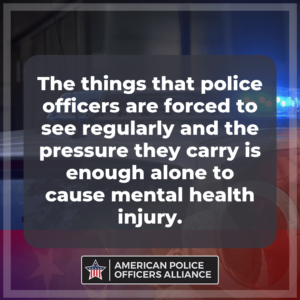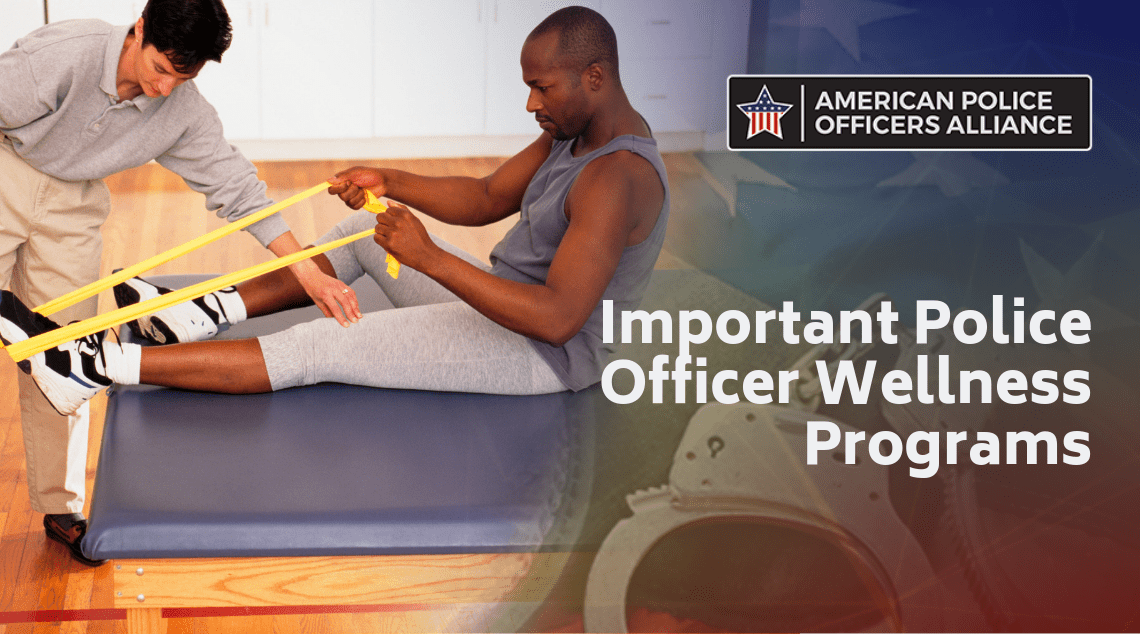Police officers are responsible for keeping their communities safe. They are called upon to act and react during the worst days that the community sees, which is why it’s so important to ensure that they are mentally and physically well at all times.
The things that police officers are forced to see regularly and the pressure they carry is enough alone to cause mental health injury. In addition to the mental wears and tears, the job entails daily abuse of their bodies causing their physical health to deteriorate over the course of their careers.
These reasons are just a few of the many reasons why departments across the country are, thankfully, implementing, offering, and even enforcing police officer wellness programs that focus on the mental and physical health of their officers. While some departments have had these types of programs around for some time, they have only just recently become standard. Physical wellness programs have been around much longer than mental wellness programs. However, as suicide rates among police officers are now higher than the rates of dying in the line of duty, more and more departments are buckling down and taking the time to focus on mental health.
1. Critical Incident Debriefing
Critical incident debriefing has been implemented in many police departments across the country since the 9/11 terrorist attacks. These debriefing sessions are usually done in groups and in response to traumatic incidents that occur.
Group debriefing sessions allow officers to come together as a team to recognize and address what took place. While one-on-one counseling can be useful, these sessions can be helpful to officers by allowing them to open up with their colleagues. Having people around that go through the same exact situation can be beneficial for officers that are struggling.
When incidents like shootings and tragic deaths occur, critical incident debriefings can be very helpful in both the short and long term.

2. Annual Physical Fitness Tests
Maintaining good physical health is very crucial for police officers due to the nature of their work, and thankfully, many police departments have required that their officers undergo annual physical fitness testing.
Departments requiring these physical fitness tests have helped officers maintain good health. Some departments require that their officers completely pass the tests and if they don’t, there are consequences. In other departments, the policy is more relaxed on the results of the tests, but they will retest later on.
3. Resilience Training
IACP (International Association of Chief of Police) has partnered with the University of Pennsylvania as well as BJA’s Valor Initiative in order to push department leaders to implement resilience training into their officer’s training.
The resilience training prepares officers on how to overcome challenges that come with the job. A lot of challenges that police officers face day to day can be considered traumatic. With the help of resilience training, officers can gain skills that will help them manage stress while still being able to perform in the field.
Pushing for the implementation of officer resilience training will help departments prepare their officers for situations that might be detrimental to their mental health. When officers are operating under a healthy mindset, they are likely going to be able to perform better too.
Moving in the Right Direction
Departments such as Nashville Police have implemented a Wellness Program that is to be conducted prior to completion at their police academy. Their program is geared towards the physical aspect of police officer’s health, but the purpose is to encourage the importance of maintaining physical wellbeing throughout the course of their career.
The Mundelein Police Department in Illinois now requires that their officers see a police psychologist at least once a year to be evaluated. While their officers don’t have to say anything if they don’t want to, the implementation of this requirement was to allow their officers an outlet if they wanted or needed one which could go a long way for someone who is carrying the weight of PTSD or depression.
The Wellness Programs that the Nashville Police Department and Mundelein Police Department have implemented are not just beneficial to their officers, but to the community as well. Mentally and physically healthy police officers will be able to better protect their communities. They’re less likely to be out of shape and more likely to be operating under a healthy mindset.
These departments along with so many more are taking steps in the right direction to keep their communities and their officers safe. As more time passes, we hope that more departments will follow in the footsteps of Nashville and Mundelein PD.
Police, like combat veterans, suffer through dramatic trauma that affects them in both their professional and personal lives. However, unlike combat veterans, therapy to treat PTSD is often seen as a stigma in the ranks of our police today – and that needs to end. Read about Eliminating the Stigma of PTSD Treatment for Our Police here.









